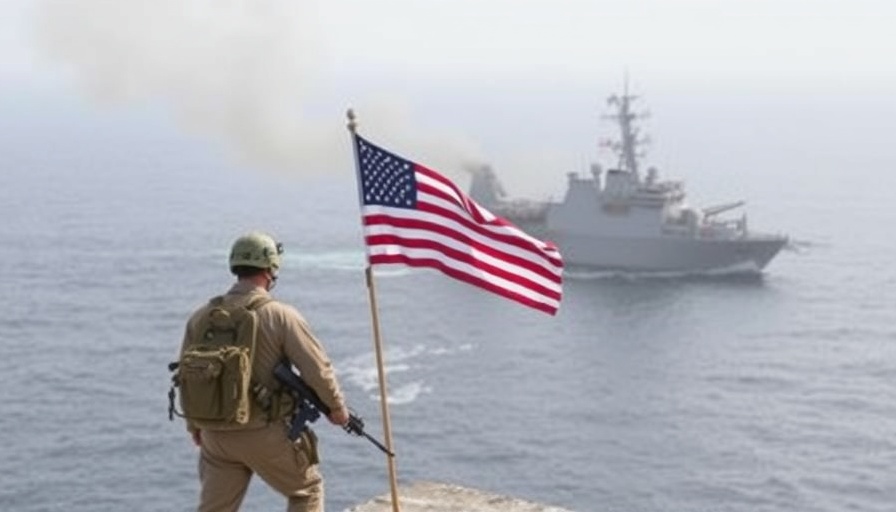
America’s Dilemma: Commitment vs. Capability
For many years, the United States has positioned itself as a guardian of peace and stability in the Gulf region. Yet, recent developments, particularly Israel's military actions in Qatar, have brought into question America's reliability as an ally. In a dramatic display of force, President Donald Trump once promised unwavering support, standing proudly next to American troops in Qatar’s capital, Doha. Despite these bold reassurances, the military realities have complicated the narrative of defense and power projection.
The Shift in Regional Power Dynamics
The situation in the Gulf has become increasingly intricate. As Israel escalates its military response, targeting what it perceives as threats from neighboring nations, the potential for broader conflict looms. Trump's statements seem hollow in the face of growing instability, raising concerns among Gulf allies such as Qatar, who have invested heavily in their relationship with the U.S. The repercussions of the Israeli strikes are profound, suggesting that militaristic actions might not align with American foreign policy’s original intentions.
Exploring the Stakes for Gulf Allies
Qatar's ongoing distress is emblematic of a larger anxiety among Gulf nations. These countries rely on the promise of U.S. defense to deter aggression from larger powers in the region, particularly Iran. The inconsistency between U.S. promises and its capacity or willingness to act has left allies in a precarious position. They must now grapple with the reality that America may not respond decisively when they face threats, undermining trust and cooperation.
What Lies Ahead? Predictions for the Gulf Region
Looking forward, the trajectory of U.S. support in the Gulf could significantly influence the regional power structure. If allies perceive that the U.S. is retracting from its protective role, expect an arms race, as Gulf nations may pursue independent military capabilities. Furthermore, new alliances could form as nations seek more reliable partners. These shifts could destabilize the already tense interactions in the Gulf, making the landscape significantly more complex.
Redefining Alliances: A New Era for the Gulf?
As the implications of U.S. action—or inaction—settle in, the Gulf states might look to other nations. Countries like China and Russia are eager to extend their influence, potentially offering strategic partnerships that could reshape the geopolitics of oil, trade, and security. The U.S.'s longstanding influence is at a crossroads, with its future actions determining its long-term standing in the region.
In conclusion, America’s inability or unwillingness to protect its allies in the Gulf presents a pivotal turning point. As relationships evolve and new alliances are tested, how the U.S. chooses to navigate this challenging landscape will be defining for regional peace and its own global standing. Stay informed on these pressing developments that shape our world.
 Add Row
Add Row  Add
Add 




Write A Comment